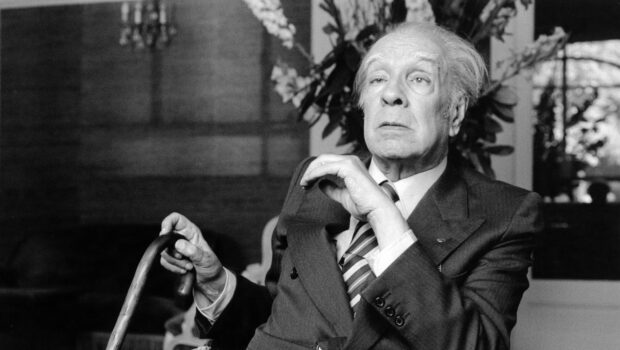Who Took Trump Seriously?
¿Quién tomó a Trump en serio?
Yvon Grenier
The explanations for Trump’s extraordinary victory are many, but their point of departure is remarkably similar: Trump may be a charlatan, but the deep socioeconomic causes of Trumpism are real. No wonder Salena Zito’s maxim became so famous: “The press takes him literally, but not seriously; his supporters take him seriously, but not literally.” But what if it was the other way around, and it was his supporters who didn’t take him seriously? Arguably, the press and his detractors took him very seriously. The media’s coverage of his campaign (and not just in the US) was unusually alarmist, especially after his victory in the Republican primaries. The press in the US can be faulted for its “balancism” (the obsession with dispensing criticism equally between the two parties), but not for being frivolous about Trump’s political significance. Perhaps the pundits are looking for legitimate socioeconomic grievances because it is unbearable to entertain the notion that in fact, Trump supporters may not take him or the elections seriously. It seems inconceivable that a great country could do that to itself, unreflectively. Furthermore, Trump fans are now seen as victims. They are typically working class folks (though not the very poor), mostly without college degrees. According to The Economist, they typically have “lower life expectancy, higher rates of obesity, diabetes, heavy drinking and lower levels of regular physical activity.” Shockingly, roughly one out of two women and one out of three Latinos voted for The Donald. The decent thing to do when this new “Other” speaks is to try and understand what it wants to teach us. Finally, Trump won the elections, and national elections are a civic sacrament. The people cannot be wrong and the will of the people must be respected. Why is it such a taboo to say that voting for Trump, for almost any American citizen, was demonstrably reckless and stupid? The importance of stupidity in politics (in life!) is a constant theme in literature, but it is a taboo topic in political science and journalism. To be clear, I am talking about a stupid decision, not about people being stupid. Smart people make stupid mistakes all the time, and not so smart people make wise decisions with equal frequency. Errors are possible in all walks of life: why not in politics?
As most pundits take the deep “causes” of Trumpism seriously and proclaim the crisis of globalization, free trade, immigration, and liberal values more generally, we fail to appreciate the importance of the “causer”: Trump himself. What if he was the necessary condition? He is a celebrity with considerable demagogic skills. Interesting that terms like “post-truth” and “alternative facts” were introduced to our lexicon by a star of (pseudo) reality television. In the age of catch-all parties and focus-groups’ manufactured electoral platforms, Trump is truly original and therefore authentic. Lest we forget: he is a pro-Putin, anti-free trade Republican, as well as a gaudy fat cat populist, who seduced Wisconsin wage earners by saying he prefers limos to Harley-Davidsons. His look and style are both unique and primitive; he is inimitable, yet almost anybody can mimic him. Plus, obscenity is irresistible. His breaking of conventions is refreshing for millions of blasé voters. A similar character had tremendous success in Italian politics (Silvio Berlusconi), a country with very different set of challenges and problems. What if with Trump’s election, history just repeated itself but as a farce, with his voters thinking, “yes we can” do this outrageous thing, not because we really hurt (for the most part they are better off than any time in the past and polls show that Republicans were enthusiastic about free trade a year ago), or because of some hopes and dreams, but au contraire, because this bold (“huge”, “fantastic”, “beautiful”) gesture was too tempting to turn down, and because the risk was falsely believed to be negligible. After all, the president is the leader of only one of three branches of one of 51 governments in the US, in a system of unmatched checks and balance (yes, even with Republicans controlling two and soon three branches of the federal government). Americans don’t like government and they are risk takers. To shake the political cage, when given a chance, has got to be harmless in a stable and prosperous country with the smallest government in the West. Close to half the electorate doesn’t bother to vote. By looking for deep significance we discard a much more disconcerting possibility: the unbearable lightness of voters, who simply want to register their disdain of the political class, as they did with Brexit and may do again in a number of prosperous and free European countries in 2017. In the US, if the experience turns sour for the masses, and chances are it will, the electoral mistake could be corrected in four years (not a day too soon), without seriously addressing the presumed socio-economic causes of Trumpism. (I bet British voters would like to have another shot at Brexit). Economic factors are weak predictors of the populist vote. As French writer Paul Valéry once said, “We later civilizations . . . we too know that we are mortal.” What we fail to appreciate is how this can be self-inflicted with irresponsible insouciance.
 Yvon Grenier teaches Comparative politics, Latin American politics (esp. Cuba, Mexico and Central America), Art /literature and politics. He has authored Guerre et pouvoir au Salvador (1994) and The Emergence of Insurgency in El Salvador (1999). He is a contributing Editor for Literal as well as an occasional political commentator for Radio Canada. His Twitter is @ygrenier1
Yvon Grenier teaches Comparative politics, Latin American politics (esp. Cuba, Mexico and Central America), Art /literature and politics. He has authored Guerre et pouvoir au Salvador (1994) and The Emergence of Insurgency in El Salvador (1999). He is a contributing Editor for Literal as well as an occasional political commentator for Radio Canada. His Twitter is @ygrenier1
© Literal Publishing
Traducción de Rose Mary Salum
Las explicaciones de la victoria extraordinaria de Trump son muchas, pero su punto de partida es notablemente similar: Trump puede ser un charlatán, pero las causas socioeconómicas profundas del trumpismo son reales. No es de extrañar que la máxima de Salena Zito llegara a ser tan famosa: “La prensa lo toma literalmente, pero no en serio; sus partidarios lo toman en serio, pero no literalmente”. Sin embargo ¿qué pasaría si fuera al revés y fueran sus partidarios quienes no lo tomaran en serio? Podría decirse que la prensa y sus detractores lo tomaron muy en serio. La cobertura de los medios de comunicación de su campaña (y no sólo en los EE.UU.) fue inusualmente alarmista, especialmente después de su victoria en las primarias republicanas. La prensa en Estados Unidos puede ser criticada por su “balancismo” (la obsesión de distribuir la crítica igualmente entre los dos partidos) pero no por ser frívola sobre el significado político de Trump. Tal vez los expertos están buscando agravios socioeconómicos legítimos porque es insoportable considerar la idea de que, en realidad, los partidarios de Trump lo están tomando a él, o las elecciones, en serio. Parece inconcebible que un gran país pueda hacerse eso a sí mismo, sin reflexión alguna. Además, los fans de Trump ahora son vistos como víctimas. Por lo general son gente de clase trabajadora (aunque no son los más pobres), en su mayoría sin títulos universitarios. Según The Economist, suelen tener “menor esperanza de vida, mayores tasas de obesidad, diabetes, consumo intensivo de alcohol y niveles más bajos de actividad física regular”. Sorpresivamente, al rededor de una de cada dos mujeres y uno de cada tres latinos votaron por Donald. Lo decente sería tratar de entender lo que quiere enseñarnos ese nuevo “Otro”. Finalmente, Trump ganó las elecciones y las elecciones nacionales son un sacramento cívico. La gente no puede estar equivocada y la voluntad del pueblo debe respetarse. ¿Por qué es un tabú decir que votar por Trump era demostrablemente imprudente y estúpido? La importancia de la estupidez en la política (¡en la vida!) es un tema constante en la literatura, pero es un tema tabú en la ciencia política y el periodismo. Para ser claro, estoy hablando de una decisión estúpida, no sobre la gente estúpida. Las personas inteligentes cometen errores estúpidos todo el tiempo, y la gente no tan inteligente toma decisiones sabias con la misma frecuencia. Los errores son posibles en todos los ámbitos de la vida: ¿por qué no en la política?
Como la mayoría de los expertos toman en serio las “causas” profundas del trumpismo y proclaman la crisis de la globalización, el libre comercio, la inmigración y los valores liberales en general, no apreciamos la importancia que originó todo: Trump mismo. ¿Y si él era la condición necesaria? Él es una celebridad con habilidades demagógicas considerables. Es muy interesante que términos como “post-verdad” y “hechos alternativos” fueron introducidos a nuestro léxico por una estrella de televisión de los (pseudo) reality shows. En la era de todos los partidos y las plataformas electorales, Trump es verdaderamente original y auténtico. Para que no lo olvidemos: es un republicano pro-Putin, anti-libre comercio, así como un populista con mucho callo y llamativo, que sedujo a los asalariados de Wisconsin diciendoles que prefiere limosinas a los Harley-Davidson. Su mirada y estilo son únicos y primitivos; es inimitable, pero casi cualquiera puede imitarlo. Además, la obscenidad es irresistible. Su rompimiento de convenciones es refrescante para millones de votantes hastiados. Un personaje similar tuvo un tremendo éxito en la política italiana (Silvio Berlusconi), un país con un conjunto muy diferente de desafíos y problemas. ¿Qué pasa si con la elección de Trump, la historia se repite, pero como una farsa, con una masa de votantes pensando, “sí se puede” hacer esta cosa escandalosa, no porque realmente estamos lastimados (en su mayor parte están mejor que en cualquier momento del pasado y las encuestas muestran que los republicanos estaban entusiasmados con el libre comercio hasta solo hace un año), o debido a algunas esperanzas y sueños, pero al contrario, porque este gesto audaz (“enorme”, “fantástico”, “hermoso”) era demasiado tentador para ser rechazado, y porque se creía falsamente que el riesgo era insignificante? Después de todo, el presidente es el líder de sólo una de tres entidades de uno de los 51 gobiernos de los EE.UU., en un sistema de controles y equilibrio sin igual (sí, incluso con los republicanos que controlan dos y pronto tres de las instancias del gobierno federal).
A los estadounidenses no les gusta el gobierno y toman riesgos. Sacudir el ambiente político, cuando se le da una oportunidad, tiene que ser inofensivo en un país estable y próspero con el gobierno más pequeño de Occidente. Cerca de la mitad del electorado no se molesta en votar. Al buscar un significado profundo descartamos una posibilidad mucho más desconcertante: la insoportable ligereza de los votantes, que simplemente quieren registrar su desprecio hacia la clase política, como lo hicieron con Brexit y pueden volver a hacerlo en varios países europeos prósperos y libres en el 2017. En los Estados Unidos, si la experiencia se vuelve amarga para las masas, y es probable que así sea, el error electoral podría ser corregido en cuatro años (no demasiado pronto), sin abordar seriamente las supuestas causas socio-económicas del trumpismo. (Apuesto a que los votantes británicos quisieran tener otra oportunidad con el Brexit). Los factores económicos son débiles predictores del voto populista. Como dijo el escritor francés Paul Valéry una vez: “Nosotros, las civilizaciones… también sabemos que somos mortales”. Lo que no apreciamos es cómo esto puede ser auto-infligido con una imprudencia muy irresponsable.
 Yvon Grenier, profesor de ciencias políticas en la St. Francis Xavier University de Nueva Escocia, Canadá, es coeditor del Canadian Journal of Latin American and Caribbean Studies. Ha colaborado con artículos en Mexican Studies, Discourse, Letras Libres y Literal Magazine. Es autor de dos libros: Guerre et pouvoir au Salvador (1994) y The Emergence of Insurgency in El Salvador (1999). Su Twitter @ygrenier1
Yvon Grenier, profesor de ciencias políticas en la St. Francis Xavier University de Nueva Escocia, Canadá, es coeditor del Canadian Journal of Latin American and Caribbean Studies. Ha colaborado con artículos en Mexican Studies, Discourse, Letras Libres y Literal Magazine. Es autor de dos libros: Guerre et pouvoir au Salvador (1994) y The Emergence of Insurgency in El Salvador (1999). Su Twitter @ygrenier1
©Literal Publishing. Queda prohibida la reproducción total o parcial de esta publicación. Toda forma de utilización no autorizada será perseguida con lo establecido en la ley federal del derecho de autor.
-
Pingback: Niels Jespersen: Vil Paludan udvise muslimerne, skal han forbi os andre først « RÆSON










